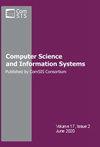Digital remote work influencing public administration employees satisfaction in public health complex contexts
IF 1.2
4区 计算机科学
Q4 COMPUTER SCIENCE, INFORMATION SYSTEMS
引用次数: 0
Abstract
The purpose of this study is to describe and analyze whether digital remote work in times of Covid-19 is influencing the satisfaction of Public Administration employees. Based on the objective of this study, an online survey was conducted in the Portuguese Public Administration, for a sample of 70 individuals, working at home due to the situation of Public Health caused by the Coronavirus. Digital remote work is being applied massively worldwide and is a specific form of work organization supported by information and knowledge. Digital remote workers carry out their activities at home and using digital technologies, depending on the nature of the tasks and work situations. To understand the satisfaction of Public Administration employees, an empirical study was carried out, supported by data collection through an online survey. The main conclusions were that despite the constraints (resistance of top management, organizational culture, autonomy, and flexibility of workers, among others) that existed before the health and socioeconomic crisis caused by the Coronavirus pandemic, digital remote work is a given in the life of organizations, public or private, and of workers with reflection at various levels in society and particularly in the professional fulfillment and satisfaction of employees. According to the analysis carried out on the data collected to support the conclusions of this study, the degree of satisfaction of Public Administration employees is influenced in different ways by the influencing factors studied: autonomy at work, conditions at work, and income. However, regarding the factor of quality of life at work, this link has not been established. Thus, it was possible to conclude that satisfaction increases positively and strongly with autonomy at work. Technological specialization and productivity still have a positive influence, but with low intensity contribute to the satisfaction of AP employees. Working conditions also negatively influence satisfaction, although at an average intensity. However, the average degree of job satisfaction varies according to the different age groups, with employees aged 35 or more having a higher satisfaction average than employees whose ages vary between 34 and the beginning of their working lives.数字远程工作影响公共卫生复杂背景下公共行政员工满意度
本研究的目的是描述和分析Covid-19时期的数字远程工作是否影响公共行政员工的满意度。基于本研究的目的,在葡萄牙公共行政部门进行了一项在线调查,样本为70人,由于冠状病毒引起的公共卫生状况而在家工作。数字远程工作正在世界范围内得到广泛应用,是一种由信息和知识支持的特殊工作组织形式。数字远程工作者根据任务和工作情况的性质,在家中使用数字技术开展活动。为了了解公共行政员工的满意度,本研究以实证研究为基础,通过在线调查收集数据。主要结论是,尽管在冠状病毒大流行引起的健康和社会经济危机之前就存在制约因素(高层管理人员的阻力、组织文化、自主权和工人的灵活性等),但数字远程工作在公共或私人组织和工人的生活中是一个给定的,反映了社会的各个层面,特别是在员工的职业实现和满意度方面。根据为支持本研究结论而收集的数据进行的分析,公共行政员工的满意度受到研究的影响因素:工作自主性、工作条件和收入以不同的方式影响。然而,关于工作生活质量的因素,这种联系尚未建立。因此,我们可以得出这样的结论:工作中的自主性会积极而强烈地增加满意度。技术专业化和生产率对AP员工满意度仍有正向影响,但对员工满意度的贡献强度较低。工作条件也会对满意度产生负面影响,尽管强度一般。然而,工作满意度的平均程度因不同年龄组而异,35岁或以上的员工比年龄在34岁至工作生涯开始之间的员工平均满意度更高。
本文章由计算机程序翻译,如有差异,请以英文原文为准。
求助全文
约1分钟内获得全文
求助全文
来源期刊

Computer Science and Information Systems
COMPUTER SCIENCE, INFORMATION SYSTEMS-COMPUTER SCIENCE, SOFTWARE ENGINEERING
CiteScore
2.30
自引率
21.40%
发文量
76
审稿时长
7.5 months
期刊介绍:
About the journal
Home page
Contact information
Aims and scope
Indexing information
Editorial policies
ComSIS consortium
Journal boards
Managing board
For authors
Information for contributors
Paper submission
Article submission through OJS
Copyright transfer form
Download section
For readers
Forthcoming articles
Current issue
Archive
Subscription
For reviewers
View and review submissions
News
Journal''s Facebook page
Call for special issue
New issue notification
Aims and scope
Computer Science and Information Systems (ComSIS) is an international refereed journal, published in Serbia. The objective of ComSIS is to communicate important research and development results in the areas of computer science, software engineering, and information systems.
 求助内容:
求助内容: 应助结果提醒方式:
应助结果提醒方式:


